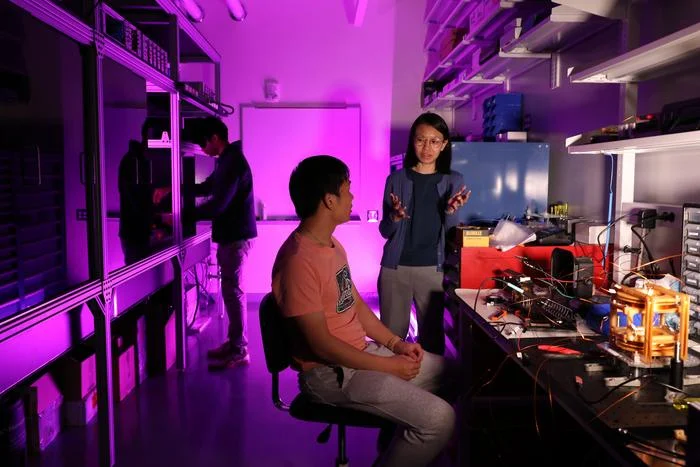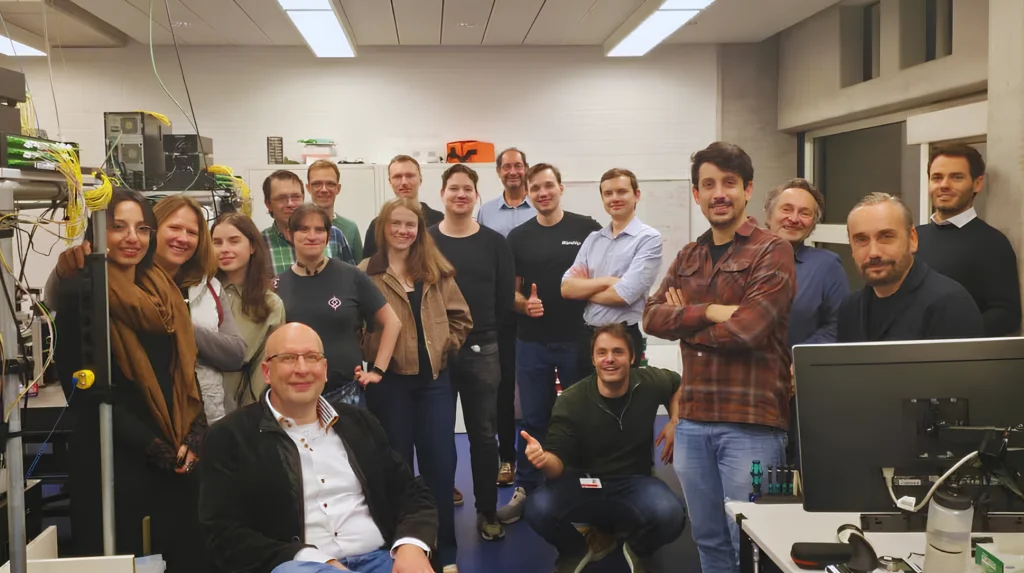Insider Brief
- Canada has made quantum technology a core focus of its 2025 G7 agenda, positioning it as a strategic tool for economic growth, energy security, and digital transition.
- The announcement follows coordinated lobbying by Quantum Industry Canada and international partners, calling for trusted collaboration on quantum supply chains, cybersecurity, and competitiveness.
- A global industry summit, QUANTUM NOW, will be held in Montréal days after the G7, aiming to align business, policy, and investment strategies around industrial quantum deployment.
Canada is placing quantum technology at the center of its 2025 G7 agenda, a signal that the emerging field is no longer a niche science but a driver of economic and geopolitical strategy.
In a statement released ahead of the G7 Leaders’ Summit, scheduled for June 15–17 in Kananaskis, Alberta, Canadian Prime Minister Mark Carney named quantum alongside artificial intelligence as essential tools for accelerating the global digital transition and securing long-term energy resilience. The announcement elevates quantum to a core focus of international policy coordination, bringing it into a forum typically reserved for the world’s most pressing security and economic concerns.
“Canada has what the world wants and the values to which others aspire,” said Mark Carney, Prime Minister of Canada, in the statement. “The G7 Leaders’ Summit in Kananaskis is a moment for Canada to work with reliable partners to meet challenges with unity, purpose, and force. Canada is ready to lead.”

Quantum Industry Canada Efforts
The move caps months of lobbying by Quantum Industry Canada (QIC), which co-authored a letter last October with members of the International Council of Quantum Industry Associations (ICQIA), urging Canada’s then-leadership to prioritize quantum across the G7. The joint letter was signed by industry bodies representing Canada, the U.S., UK, EU, and Japan and argued that trusted international cooperation in quantum would be essential to securing supply chains, boosting economic competitiveness and enhancing national security readiness.
“We welcome today’s recognition that accelerating the quantum transition is essential to ‘building energy security and accelerating the digital transition’ — one of three core missions guiding Canada’s Presidency G7 agenda,” writes Lisa Lambert, CEO, Quantum Industry Canada (QIC) and Executive Committee Member, International Council of Quantum Industry Associations (ICQIA), in a statement. “Quantum technologies are already converging with cybersecurity, AI, advanced computing, communications and networking, next-generation sensing — with real-world implications for secure infrastructure, manufacturing, energy systems, and defence readiness.”
Protect. Build. Strengthen
Carney’s announcement aligns with that vision. Canada’s G7 platform outlines three broad goals: protecting communities and democratic institutions, building energy and digital security, and strengthening infrastructure through public-private partnerships. Quantum’s inclusion under the second pillar — “accelerating the digital transition” — marks the first time the technology has received this level of recognition at a G7 Summit.
While quantum technologies are still in early stages, they are already being deployed in cybersecurity, next-generation communication and advanced sensing systems. Canadian officials and industry leaders are now positioning the country to lead in commercializing these tools in sectors such as defense, infrastructure, and manufacturing.
QIC says this growing global alignment around quantum policy couldn’t come at a more important time. Days after the summit wraps, the organization will host QUANTUM NOW | ICI QUANTIQUE in Montréal (June 18–19), an event billed as an official Industry & Innovation Global Event for the United Nations’ International Year of Quantum Science and Technology. The summit aims to build on G7 momentum by convening business leaders, investors, and policymakers to discuss near-term paths to industrial deployment.
Canada’s emergence as a quantum leader stems from decades of coordinated research investment. Home to pioneering institutions such as the University of Waterloo’s Institute for Quantum Computing and deep-tech incubators like Distriq, according to The Quantum Insider’s Intelligence Platform, the country has grown a robust network of startups and researchers punching far above their weight on the global stage.
That success has not gone unnoticed: several Canadian quantum companies have attracted significant domestic and foreign investments. The government continues to support the sector through its National Quantum Strategy.
Coordination and Cooperation
Although Canada has already met with success in its national plan to become a quantum leader, with this G7 declaration, the government is calling for international coordination not only on cybersecurity standards and R&D collaboration, but also on building resilient supply chains for quantum hardware, much of which depends on rare or strategically sensitive materials. The move also acknowledges concern about falling behind in the face of rising investments in China and other countries.
Those geopolitical dimensions are increasingly becoming not just a part of the conversation, but a focus of talks. Quantum-secured communications, for instance, are being explored as tools for government resilience in an era of increasing cyber threats. Sensor technologies based on quantum physics could enhance navigation and detection systems for national defense. As such, the G7’s embrace of quantum reflects a broader shift: treating the technology as a national asset and strategic differentiator.
Lambert writes: “Canada was among the first countries to recognize the strategic potential of quantum — and over the past few decades, we’ve grown into a globally respected leader whose impact far exceeds our size. This position is no accident. It reflects a coordinated effort across research, industry, and government to turn scientific excellence into strategic advantage — an effort we are eager to see scaled in line with the accelerating pace of global quantum development. As the world enters a new era of technological competition and cooperation, QIC and our ICQIA partners stand ready to help ensure G7 nations lead with unity, purpose — and action.”















